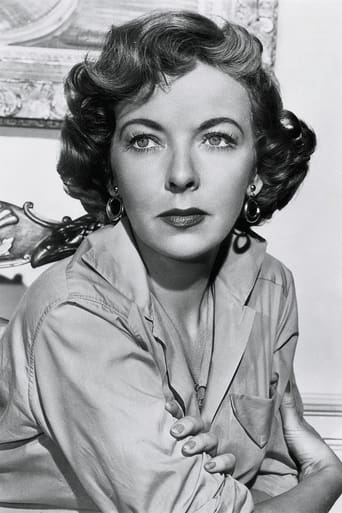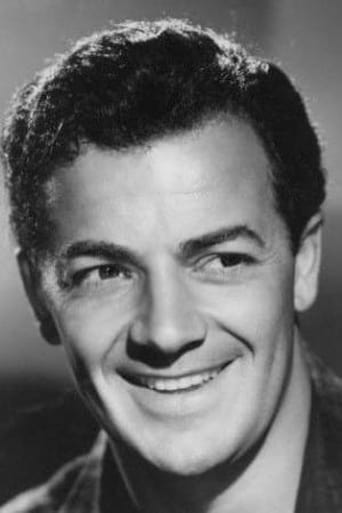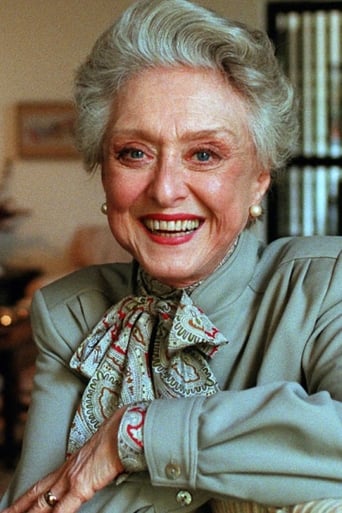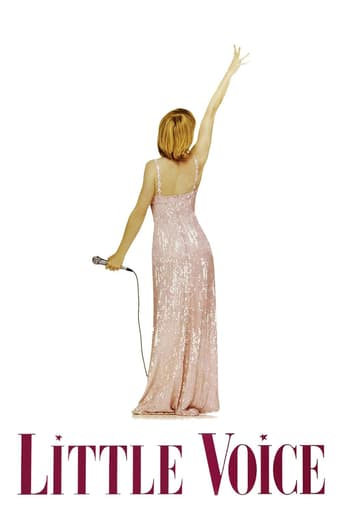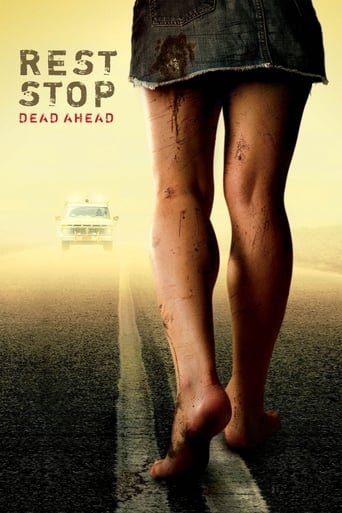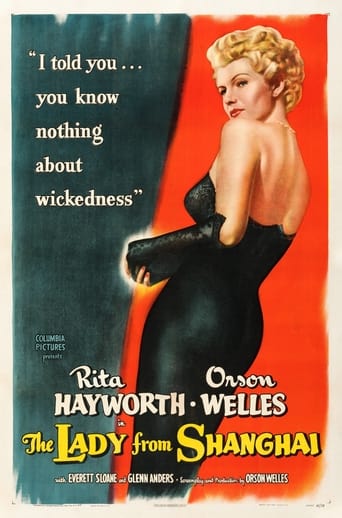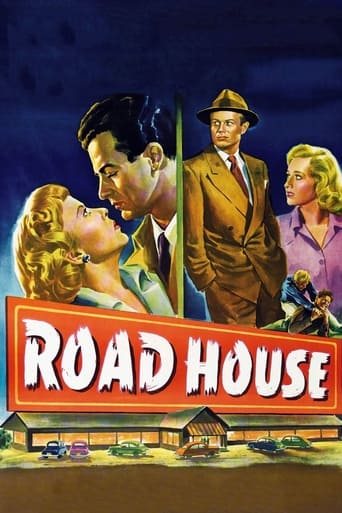
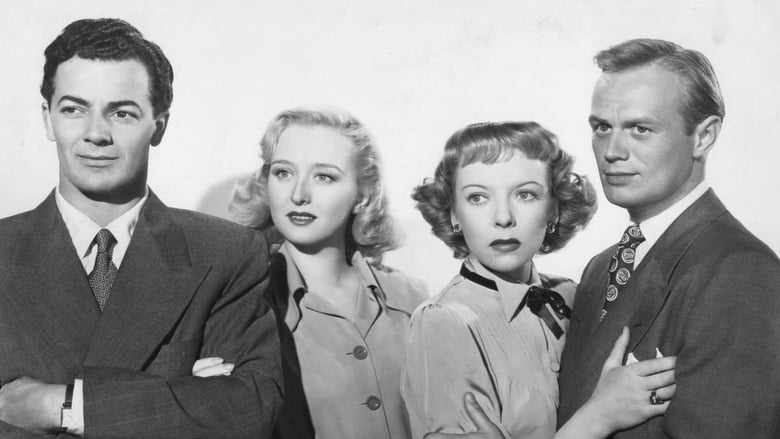
Road House (1948)
A night club owner becomes infatuated with a torch singer and frames his best friend/manager for embezzlement when the chanteuse falls in love with him.
Watch Trailer
Cast
Similar titles
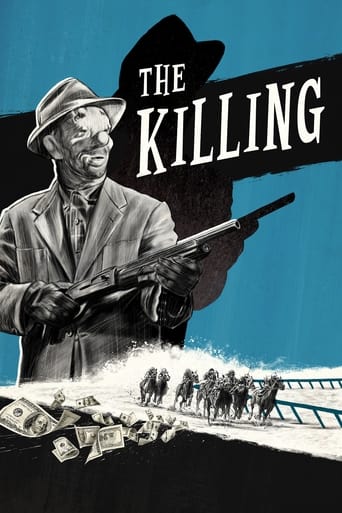

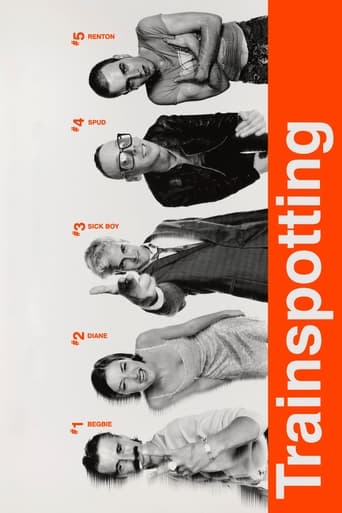
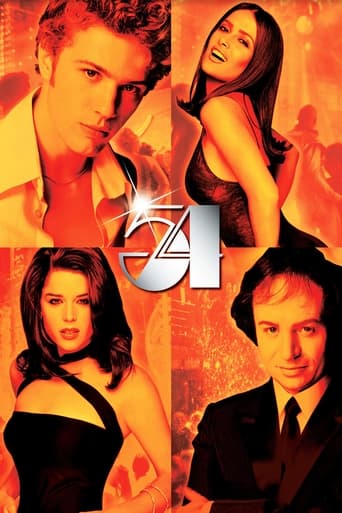
Reviews
The acting in this movie is really good.
True to its essence, the characters remain on the same line and manage to entertain the viewer, each highlighting their own distinctive qualities or touches.
It’s sentimental, ridiculously long and only occasionally funny
It's simply great fun, a winsome film and an occasionally over-the-top luxury fantasy that never flags.
When the Chicago singer Lily Stevens (Ida Lupino) arrives at the Jefty Road House hired by the owner Jefferson T. 'Jefty' Robbins (Richard Widmark), the manager Pete Morgan (Cornel Wilde) gives a cold reception to her. Jefty asks Pete, who is his best friend, to drive Lily to the local hotel. However Pete drives her to the train station instead and asks Lily to go back to Chicago. She refuses to go and her performance is successful in her debut. Soon Pete changes his opinion towards Lily and the accountant and cashier Susie Smith (Celeste Holm) informs that the public has increased not only in the roadhouse, but also in the bowling alley. Jefty feels attraction for Lily, but when he travels, Lily and Pete fall in love with each other. When Jefty returns, he brings a marriage license and proposes Lily; however she dumps him and Pete and she decide to travel to Chicago and leave the town. However Jefty frames Pete and reports a hake theft to the police. Pete is arrested and found guilty by the jury. However Jefty proposes to the judge that Pete continues to work for him instead of going to the prison. What is the intention of Jefty? "Road House" is an engaging film–noir with a storyline of unrequited love and obsession. Ida Lupino has an impressive performance, singing with a wonderful husky voice. The first performance of the famous song "Again" is the soundtrack of "Road Movie" sang by Ida Lupino. This film is also the third appearance of the outstanding Richard Widmark and his insane smile on the cinema. Cornel Wilde and Celeste Holm complete the dream cast of this unknown gem. My vote is eight.Title (Brazil): "A Taverna do Caminho" ("The Tavern on the Way")
Road House is directed by Jean Negulesco and adapted to screenplay by Edward Chodorov from a story by Margaret Gruen and Oscar Saul. It stars Ida Lupino, Cornel Wilde, Celeste Holm and Richard Widmark. Music is by Cyril J. Mockridge and cinematography by Joseph LaShelle.When Jefty Robbins (Widmark) brings new torch singer Lily Stevens (Lupino) to the Road House he owns, it causes friction between Jefty and his boyhood pal Pete Morgan (Wilde). So much so it will have dire consequences for some...I guess this is a moose trap all around.Love triangle noir that comes away from the city and out to the sticks, Road House rises above the clichéd storyline to become engrossing entertainment. Narrative stays straight and true, two pals from way back are divided by the appearance of a woman on the scene, it's going to end bad for someone and the audience knows this, and they know who it's going to be, which sadly nullifies the mystery element. But the characters are well drawn and well performed, with Negulesco (The Mask of Dimitrios) able to paper over the cracks without using pointless filler. The big rewards here come in Widmark's coiled spring performance and the script which is full of acid tongued barbs and sardonic observations.The backdrop is most unusual in terms of genre conventions, the Road House of the title is an out of the way bar with a bowling alley out in back country Americana. This is a bar that reeks of moose hunting and forests, it's all very rustic and rural, with the fashions adorned by the principals reflecting their surroundings, but LaShelle's photography keeps us in the noir frame of mind with classic isolated lighting. There's also some musical numbers performed by Lupino, she has a husky voice that while it isn't exactly musical grace, it conjures up a feeling of too many cigarettes and bourbon, with a sadness befitting the mood of the songs, particularly where the standout "One For My Baby (And One More For The Road)" is concerned.Unusual at times and not as "drastic" as the source story hints it could have been, but very much one for the noir faithful to enjoy. 7/10
Actually, in real life people rarely are driven nuts by frustration. They go nuts and then they try to find some reason for it. Not that it matters in this case. In 1948 Richard Widmark had a patent on a certain kind of maniac, the kind that giggles as he kills.He begins normally enough. Well, normal for Widmark anyway. He's the impulsive owner of Jefty's Road House near the Canadian border, an undistinguished place with deer heads on the wall. Cornel Wilde is his junior partner and Celeste Holm is the cashier.Widmark brings home a singer, Ida Lupino, whom he picked up on one of his jaunts to the city. He has designs on her. Wilde wants to get rid of her but in fact she turns out to be a terrific success. It's hard to see how because Lupino's voice is neither dubbed nor good. It's full of cracks and sounds smoke cured from years of Chesterfields. Well, okay, nobody ever accused Diana Krall of having an operatic voice and she's not a sex bomb either but Krall can at least play the piano while Lupino's skill is limited to the rudimentary.Come to think of it, everybody smokes in this movie -- a lot. If it were to be remade, nobody would smoke because it's now politically incorrect to show cigarettes in use. Guns -- yes. There'd be blood and brains all over the place in a remake, but no tobacco. First things first.At any rate, Widmark goes away for a week's hunting and guess what happens in his absence? When he returns, he's determined to marry Lupino. He has the marriage license in his pocket. At this point, it's easy to feel sorry for the deluded Widmark character. His friendship with Wilde aside, it's the first sign of maturity that he's shown. Still, it's Wilde's unpleasant duty to tell Widmark that he's out of the picture.Widmark, resignation not being his strong suit, frames Wilde for grand larceny and convinces the judge that Wilde should be paroled to him, Widmark. The judge concurs. I didn't even know you could do that -- I mean that a judge could decide on his own that a convicted man could be turned over to another ordinary citizen as a kind of slave.And a slave is what the sullen Wilde now becomes. He's restored to his earlier position only at a lesser income. He can't slug Widmark. He can't even talk back. And Lupino is tied to Widmark through her love for Wilde. Celeste Holm has the unenviable task of being the good, sensible girl whom nobody wants.Finally, at a cabin in the woods, Widmark goes bananas and after being beaten senseless by Wilde -- he was rude to Lupino -- he grabs a pistol and chases Wilde and Lupino through the forest as they make for the Canadian border. Here the film could have used some location shooting. Studio forests are rarely convincing. There's never any wind, the greenery looks phony and repetitive, and sometimes there are echoes where there should be no echoes. There are instances, though, when studio forests become so stylized as to be -- not convincing -- but at least honest in their falsity. "Battleground" and "Bataan" are examples.Wilde is the nominal hero but he's pretty routine. The character is so straight that he's uninvolving. Lupino's role is more textured. She's had a "past," as they say, and she's a willful and complicated babe. She's skinny and vulnerable but tough enough to belt Wilde when he tries to hustle her out of town with a few bucks. Widmark's character is by far the most interesting. A little unbalanced at the beginning, he turns crafty and bitter before he loses it altogether. There's a good deal of pathos in the character.I don't know if this is a "noir," though it's very dark. A woman comes between two men, but nobody slinks around the city streets and there is no sneaky betrayal by anyone. There's no city at all. The town near which Widmark's road house is located has a population of about 14,000, and we don't see much of it beyond the hotel and the police station. Jean Negulesco's direction is pat. The musical arrangements are by Herbert Spencer, and I thought he'd been dead for years.
Spoilers....I won't go so far as to give this a one star review but I will agree with what the other low rated reviewers have said. On the down side the script is really, really, stupid. Ida is hired as a lounge act for six weeks for a country night club with a bowling alley. So the only place in town to go to has the same act for six weeks? That would get old really fast. And I asked my wife while watching this, did something happen in Chicago before this movie started to make Widmark's character go head over heals for Lupino? If Chicago happened, they never showed it. Maybe it was the gravely singing cig voice she has (which is a turn on for me). But I mean, come on, they never kiss in the film and he's head over heels for her? Then the movie flies really fast to a forced ending which is ridiculous, IMHO.OK here's the good, Ida singing One More For The Road. I had watched this as a double feature at home with "Macao" and Jane Russell had sung that same song and this version was much better (again IMHO). Another good thing, the bar fight, that was good. And finally, the night club was really cool, I imagined myself hanging out there, that would have been really nice.More Spoilers.....What could have saved this film for me? When Widmark comes into the kitchen with Ida and Cornell kissing and does nothing, if that went into a 3 way thing, that would have been memorable (but this isn't a European film so, NOT!). Another thing would have been after Cornell gets the damning envelope evidence at the end Widmark kills them all and gets off clean, that would have been a memorable ending. Alas, this is made in 1948 not 1988 so it didn't happen and we get a rushed lame movie. I'm sure it killed some time in the theaters back in the day. It's kind of like what we would see on TV in the 70's on a Quinn Martin production or ABC Mystery Movie of the week except its 1948 and TV wasn't big yet. 5 of 10, IMHO.

